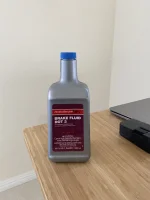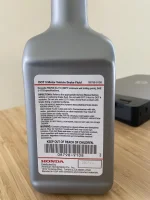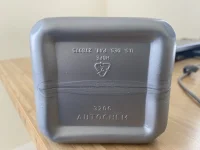My dealer received a new shipment of Honda DOT 3 Brake Fluid and the bottles appear to be different than before. The bottom of the bottles now say "autochem" and the back label shows a wet boiling point of 298F.
Any idea on who this supplier is? I think it may be someone other than CCI.
Any idea on who this supplier is? I think it may be someone other than CCI.



